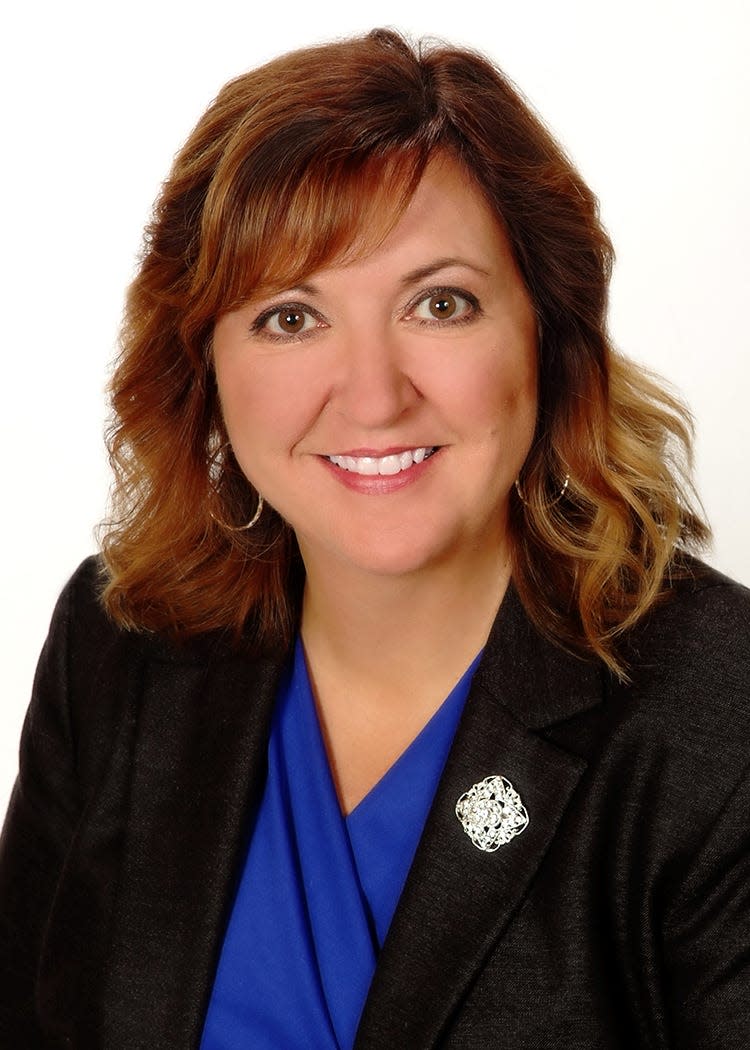Mansfield City Council considering putting 0.25% income tax on November ballot
During a Tuesday meeting, several Mansfield City Council members balked at the timing of a proposed 0.25% income tax to replace water mains.
Local attorney Eric Miller, one of the people behind the city's pothole tax in 1984, is part of a committee that has proposed a water main initiative for fire safety.
The four-year, 0.25% income tax would generate $17 million.
Water rates have been a key issue most of the year. In early February, city council voted to add a "readiness to serve" fixed fee to residents' bills. City Engineer Bob Bianchi said most people would pay an additional $10.93 a month.

"We are three months into that hike, and we're already coming back saying we need additional dollars," Councilman Alomar Davenport said. "Democracy dictates that I vote (to put the language on the ballot), but I do not support this at this time."
Council held the issue to caucus only. Members will vote strictly on putting the language on the November ballot.
"This is not created so much by council itself, but by a citizens' committee," Councilwoman Laura Burns said. "The administration has worked closely with Mr. Miller to review facts and figures."
Councilman Davenport calls income tax 'premature'
Davenport said he believed such an issue is "premature."
"We have not had the opportunity to collect any data on how the increase we've already done will address this particular issue," he said.
Miller countered Davenport's concerns.
"It was clear to me that the water increase was not going to be enough to replace mains," he said. "We were going to need an income tax increase."
Miller said without the February increase, Mansfield was in danger of being another Flint, Michigan, "making national news because of the total failure of our water treatment plant."
But he added the increase didn't come soon enough to fix the problem, nor will it generate enough funding.

Councilman Cheryl Meier said she shared Davenport's concerns. She said she has received calls from tearful constituents who say they can't pay for both their water bill and groceries.
"That's a hard conversation to have with someone," Meier said. "I hesitate doing this right now."
Bianchi previously told the News Journal that the city has 53.4 miles of 4-inch water mains, which are too small. Of those, 95% were installed before 1938. A 1936 study found they were too small even back then.
The Environmental Protection Agency recommends an 8-inch water main as a minimum standard.
More than 100 city hydrants have been shut off
Of the city's 2,847 fire hydrants, Miller said 118 are shut off, and about 250 others produce 250 gallons a minute, the amount needed for a small fire in a one-story house. They are not working because of the 4-inch mains connected to those hydrants, Bianchi previously said.
Miller started Tuesday's conversation by giving each council member a map of their individual wards. The map showed fire hydrants that had been shut off or produced less than 300 gallons a minute.
"The ideal should be 1,000 gallons a minute," Miller said. "Every one of the wards are impacted. At least $80 million is needed to replace water mains so that you can provide adequate fire safety to the people in Mansfield."
He said 2,400 residences in the city are not safe housing because they are "not within a reasonable distance of adequate fire hydrants."
"The cost of doing nothing will be far greater than incurring that 0.25% income tax to start solving this problem," Miller said.
He said the motto of the committee behind the water main initiative is to let the voters decide.
Meier questioned the value of the four-year tax issue if it will generate only $18 million — far short of the $80 million required to completely fix the problem.
"That's a lot of money, but it's a drop in the bucket when you're talking about $80 million," she said. "What would that accomplish? Where would we start?
"What if that's all we get? You have to do a renewal, obviously, after four years."
Bianchi said the administration would evaluate the most distressed areas in terms of inadequate hydrants.
"We would start with some areas in the downtown and some areas of high concentration of residents and activity," the engineer said.
Bianchi said the surcharge approved in February would generate $830,000 a year, which would cover 1% of the city's water main system.
Councilman Akuchie questions cost of project
Councilman El Akuchie questioned the $80 million figure for the entire project.
Bianchi said the city could replace a mile of 4-inch mains for $1.6 million.
"You're getting close to $70 to $80 million. It's a fair estimate," he said.
Akuchie replied, "And every penny will be strictly used for these water mains, nothing other than that?"
Bianchi and Miller said that would be the only use for the money.
While Councilwoman Kimberly Moton said she appreciated the figures, she did not know if she would vote for the issue should council choose to put it on the November ballot. Davenport said he was going to vote "no" in November.
Miller closed the discussion by saying someone who makes $40,000 a year would pay $100 a year or $2 a week for the income tax.
"It might be just what's needed to save your house or your neighbor's house," he told council.
mcaudill@gannett.com
419-521-7219
Twitter: @MarkCau32059251
This article originally appeared on Mansfield News Journal: Mansfield City Council struggling with possible income tax issue

